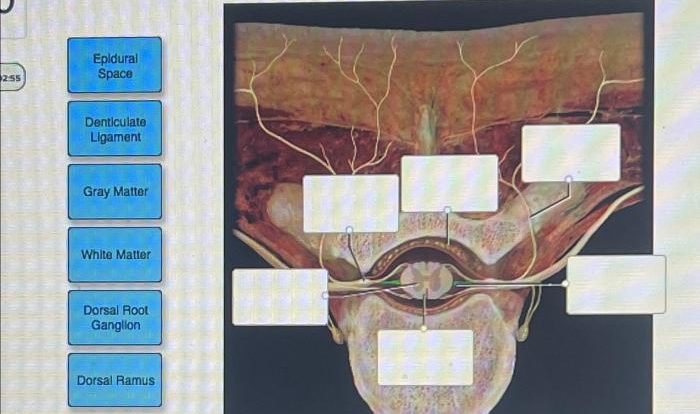Neuro nbme form 1 answers – Unveiling the secrets to success on the Neuro NBME Form 1 exam, this comprehensive guide provides the ultimate roadmap for medical students seeking to excel in their neurology assessments.
Delve into the intricacies of the exam format, master effective study strategies, and gain access to exclusive insights that will empower you to tackle this challenging exam with confidence.
Neuro NBME Form 1 Overview
Neuro NBME Form 1 is a standardized exam designed to assess medical students’ knowledge and skills in neurology. It is part of the National Board of Medical Examiners (NBME) series of exams used for medical licensing and certification.
The exam consists of 100 multiple-choice questions covering a wide range of neurology topics, including basic neuroscience, clinical neurology, and neuroanatomy.
Question Types
The questions on Neuro NBME Form 1 are presented in a variety of formats, including:
- Single best answer questions: These questions present a clinical scenario and ask the test taker to choose the best answer from a list of options.
- Multiple-choice questions: These questions present a question or statement and ask the test taker to choose all that apply from a list of options.
- True/False questions: These questions present a statement and ask the test taker to indicate whether it is true or false.
Study Strategies and Resources
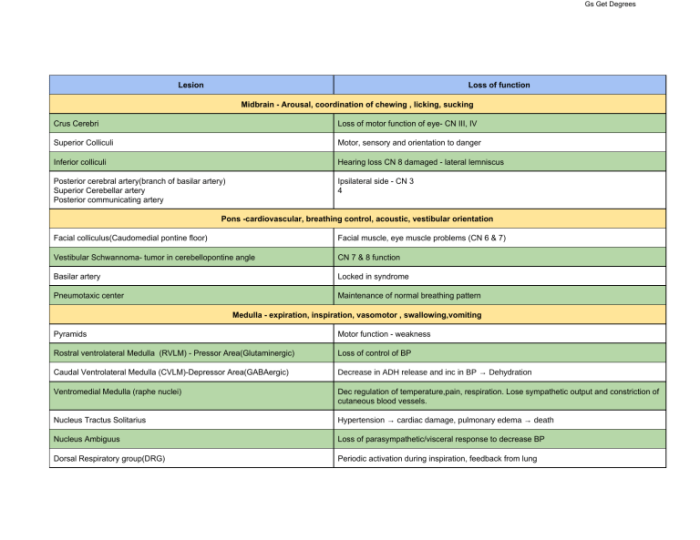
Preparing for Neuro NBME Form 1 requires effective study strategies and a comprehensive understanding of the subject matter. Here are some tips and recommended resources to help you succeed.
Effective Study Strategies
To prepare effectively, consider these strategies:
- Spaced Repetition:Review material at increasing intervals to strengthen memory.
- Active Recall:Regularly test yourself on concepts to improve retention.
- Concept Mapping:Create visual diagrams to connect and understand different ideas.
- Focused Practice:Dedicate time to practice questions and identify areas for improvement.
Recommended Resources, Neuro nbme form 1 answers
Supplement your studies with the following resources:
- Textbooks: Clinical Neuroanatomy Made Ridiculously Simple, High-Yield Neuroanatomy
- Review Materials: First Aid for the USMLE Step 1, Pathoma
- Online Platforms: UWorld, Amboss, Lecturio
Time Management and Question-Solving Techniques
Manage your time wisely by:
- Creating a Study Schedule:Plan specific study blocks and stick to them.
- Prioritizing Topics:Focus on high-yield concepts first.
- Taking Breaks:Step away from studying regularly to improve focus.
For question-solving, employ these techniques:
- Read the Question Carefully:Understand the exact question being asked.
- Eliminate Obvious Incorrect Answers:Rule out options that are clearly wrong.
- Choose the Best Answer:Select the option that most accurately answers the question.
Content Analysis
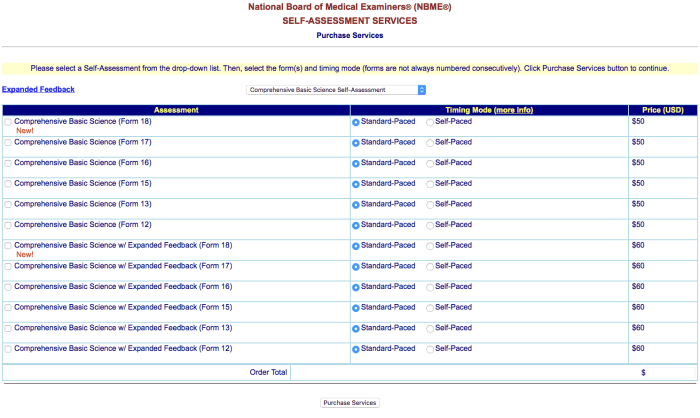
Neuro NBME Form 1 assesses a broad range of topics in neurology. Understanding the distribution and importance of these topics is crucial for effective preparation.
The following table presents the key topics covered in Neuro NBME Form 1, along with their respective weightings:
| Topic | Weighting |
|---|---|
| Stroke | 25-30% |
| Seizures | 15-20% |
| Headache | 10-15% |
| Neurodegenerative Disorders | 10-15% |
| Movement Disorders | 10-15% |
| Neuromuscular Disorders | 5-10% |
| Neuro-ophthalmology | 5-10% |
| Neuro-otology | 5-10% |
Each topic carries significant importance and relevance in neurology. Stroke, for instance, is a leading cause of death and disability worldwide, necessitating a thorough understanding of its pathophysiology, diagnosis, and management.
Seizures, another prevalent neurological condition, require familiarity with their classification, etiologies, and treatment options. Headaches, while common, can be challenging to diagnose and manage, emphasizing the need for a systematic approach.
If you’re looking for answers to the neuro NBME form 1, you might also enjoy reading the poem “aquà te amo pablo neruda” here . The poem explores themes of love, loss, and longing, and its beautiful language and imagery may provide a welcome respite from your studies.
When you’re ready to get back to the neuro NBME form 1 answers, you’ll find plenty of resources online to help you succeed.
Neurodegenerative disorders, such as Alzheimer’s and Parkinson’s diseases, are characterized by progressive neurological decline, making early diagnosis and appropriate management crucial.
Movement disorders, encompassing conditions like Parkinson’s disease and dystonia, require a detailed understanding of their clinical presentation, differential diagnosis, and therapeutic strategies.
Neuromuscular disorders, affecting the nerves and muscles, demand a comprehensive knowledge of their diverse etiologies, diagnostic approaches, and treatment modalities.
Neuro-ophthalmology and neuro-otology, while specialized fields, play a vital role in evaluating and managing neurological conditions involving the eyes and ears, respectively.
Practice and Evaluation
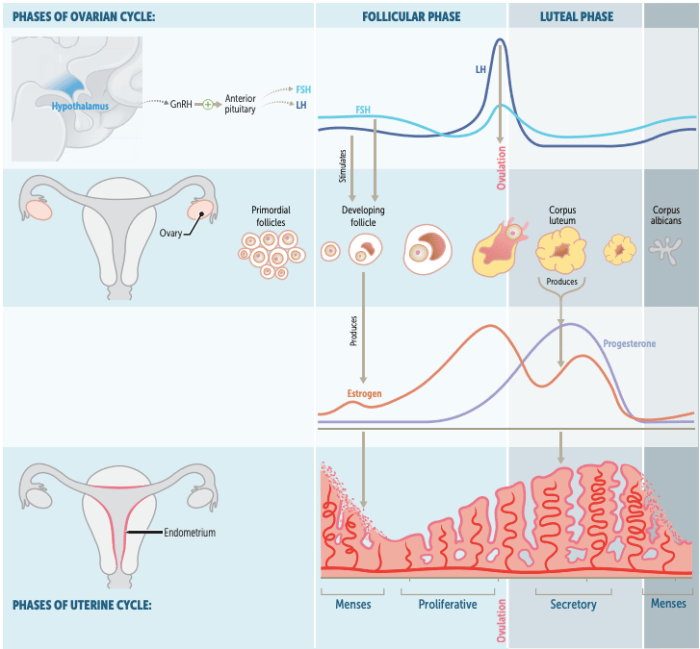
Mastering the NBME Form 1 requires diligent practice and effective self-assessment. Embracing mock exams and question banks is paramount, as they provide an invaluable opportunity to gauge your understanding, identify knowledge gaps, and refine your test-taking strategies.
Regular self-assessment is crucial to monitor your progress and pinpoint areas that need improvement. After each practice session, take time to analyze your performance, identify incorrect answers, and understand the rationale behind the correct ones. This process fosters a deeper comprehension of the subject matter and strengthens your grasp of neurology concepts.
Reviewing Incorrect Answers
Incorrect answers present a wealth of learning opportunities. Instead of dwelling on mistakes, approach them as valuable stepping stones towards improvement. Carefully examine the incorrect choices, determine why they are incorrect, and identify the correct answer and its supporting evidence.
This analytical approach transforms errors into valuable lessons, enhancing your understanding and preventing similar mistakes in the future.
Exam Day Preparation
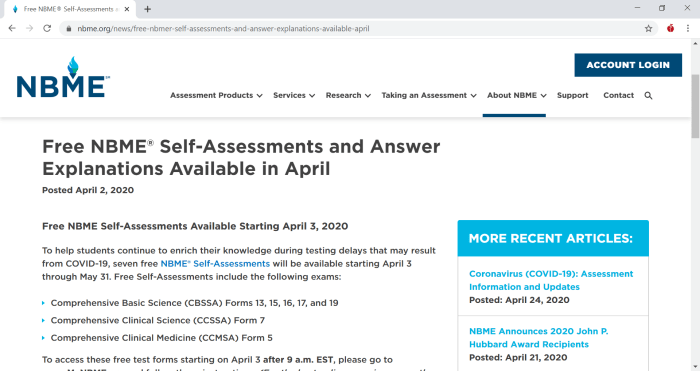
The Neuro NBME Form 1 exam is a significant milestone in your medical journey. To ensure you perform your best, it’s crucial to prepare thoroughly not just academically but also in terms of your physical and mental well-being. This section provides practical advice to help you prepare for the exam day, maximizing your chances of success.
On the day of the exam, ensure you get a good night’s sleep. Rest is essential for cognitive function, so aim for 7-9 hours of quality sleep. Additionally, eat a nutritious breakfast to provide your brain with the energy it needs to perform at its best.
Avoid sugary drinks or heavy meals that can lead to a crash later on.
Mindset
A positive mindset is key to success. Approach the exam with confidence and believe in your abilities. Remember that you have worked hard to prepare for this moment. Stay calm, focused, and trust in your knowledge and skills.
Specific Requirements
Make sure you arrive at the testing center on time, allowing yourself ample time to settle in and prepare. Bring your identification and any other required documents. The exam is typically administered on a computer, so you will not need to bring any writing materials.
FAQ Section: Neuro Nbme Form 1 Answers
What is the Neuro NBME Form 1 exam?
The Neuro NBME Form 1 exam is a standardized assessment designed to evaluate medical students’ knowledge and skills in neurology.
How do I prepare for the Neuro NBME Form 1 exam?
Effective preparation involves utilizing textbooks, review materials, and online platforms, along with practicing with mock exams and question banks.
What are the key topics covered on the Neuro NBME Form 1 exam?
The exam encompasses a wide range of neurology topics, including neuroanatomy, neurophysiology, and clinical neurology.
How can I improve my score on the Neuro NBME Form 1 exam?
Regular practice, identifying areas for improvement, and reviewing incorrect answers are crucial for enhancing your performance.
What are some tips for exam day?
Ensure adequate sleep, nutrition, and a positive mindset to perform optimally on exam day.
